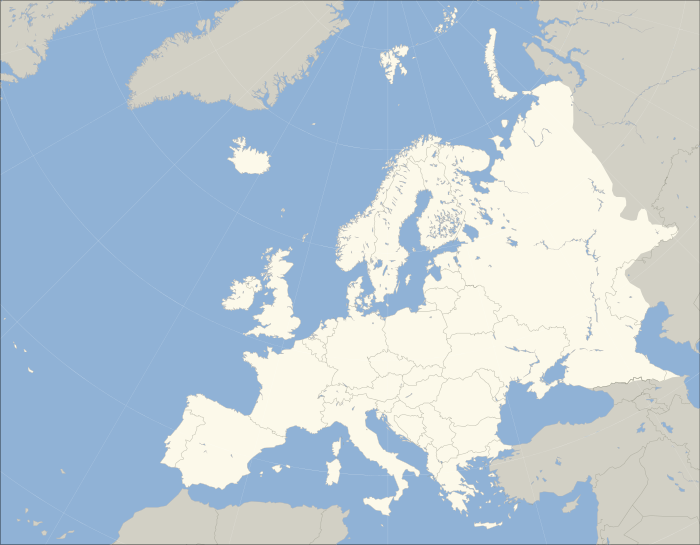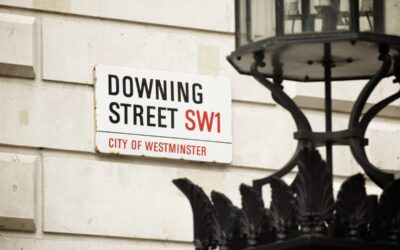Voters in 27 countries broadly supported the centrists in the European Parliament elections, but the parties of the “hard” right made serious inroads in France and Germany. This “sanction” election will have consequences for the future of European politics. The economic implications could also be significant.
The facts
The results made public late on Sunday showed that the centrist political groupings lost a few seats but retained a clear majority of over 400 seats in the 720-seat assembly. However, the key point is that the far right has achieved a clear breakthrough and is increasingly capable of being a disruptive and destabilising force in the European Union.
The ballot indicates that the prevailing winds have become colder for a section of European politics and underlines that the momentum of the far right over the last decade is still to reach its peak.
Groups in the European Parliament with a nationalist and anti-immigration agenda are now expected to control around 130 seats, a better result than in the last elections in 2019.
Right-wing parties now govern alone or in coalitions in seven of the 27 countries of the European Union.
This was unthinkable just a short while ago.
The right gained ground across the continent as voters focused more on nationalism and identity, often linked to immigration and some of the culture war politics around gender and LGBTQ issues that have gained ground in the US.
The elections highlighted the weaknesses of the French and German governments, the main members of the European Union.
Other factors contributed to the rise of the right, including continuing anger at the policies of the COVID era, as well as rising inflation in the wake of the pandemic and the war in Ukraine, which has caused Europe to shun from Russian energy.
The political earthquake also had a major impact in Belgium, among other countries. Prime Minister Alexander De Croo resigned following his party’s disastrous defeat in Sunday’s national and European parliamentary elections.
The 48-year-old could hardly hold back the tears when he announced his decision on Sunday evening in Brussels.
In the European Parliament, De Croo’s Open VLD party also performed poorly, obtaining just 5.8% of the vote. The far-right Vlaams Belang party and the Flemish nationalist N-VA party were neck and neck, with 14.8% and 14.2% of the vote respectively.
In his resignation speech, De Croo promised to ensure a “proper transfer” of power to his successor, stressing that he remained convinced that Belgium “needs a new government with full powers and capable of carrying out its tasks”.
In short, the shock is global.
The French case
In France, the election was a real bombshell. Shortly after the results were announced, President Macron announced on national television that he would dissolve the National Assembly and call new legislative elections.
The French parliamentary elections will be held in two rounds. The first round will take place on 30 June and the second on 7 July, in less than a month.
The result could put Marine Le Pen, Macron’s main rival, in her strongest ever position to challenge the mainstream parties in France in the presidential elections in three years’ time. Macron will have to stand down the due to term limits.
Macron’s decision, on the eve of the Summer Olympics in Paris in July, has ushered in a period of deep political uncertainty in the country. If the Rassemblement National repeats its performance in the national elections, the country could become virtually ungovernable, with Macron facing a Parliament hostile to everything he believes in.
What is a dissolution?
The President of the French Republic has the power to dissolve the National Assembly. Under article 12 of the Constitution, the President may do so after consulting the Prime Minister, the President of the National Assembly and the President of the Senate.
If the National Assembly is dissolved, the term of office of the deputies is interrupted and new legislative elections must be held at least 20 days and at most 40 days after the dissolution.
Such a decision could enable the President of the Republic to overcome a political crisis or institutional deadlock by prompting early elections, in the hope of obtaining a new majority in the National Assembly and consolidating power. Conversely, in the event of the defeat of the party that supports the dissolution, the Head of State could find him or herself in a situation of “cohabitation”.
The dissolution of the National Assembly leads to new legislative elections. The presidential party and its allies are not certain of obtaining a majority in these elections. In the event of defeat, the Head of State is obliged to appoint a Prime Minister from the political family that won the elections.
The experience of dissolution under Chirac
Seven years in office have taken their toll on Macron, who shook up French politics when he burst onto the scene to become president at the age of 39. The extent of that disillusionment will be put to the test in an early election.
Macron was not obliged to dissolve Parliament, even if the European vote left him in the lurch, with three years of his presidential term remaining.
France already has a history of national dissolution. Since General Charles de Gaulle founded the French Fifth Republic in 1958, the lower house of France’s bicameral parliament has been dissolved five times: by De Gaulle in 1962 and 1968, by the Socialist François Mitterrand in 1981 and 1988, and by Jacques Chirac in 1997. But in all these cases, the decision was precipitated by either a serious political crisis or acrimony between the President and Parliament.
- De Gaulle in 1962: After the dissolution, the Gaullists emerged stronger, which enabled a stable majority to be formed around the President. This contributed to a degree of political stability, which was good for the economy.
- De Gaulle in 1968: Following the social crisis of May 68, the dissolution led to a Rightist landslide. The absolute majority obtained by the Gaullists enabled the implementation of coherent economic policies.
- Mitterrand in 1981: The dissolution gave the Socialists an absolute majority, which led to the implementation of their economic programme, including nationalisations and increases in public spending.
- Mitterrand in 1988: This time, the Socialists only obtained a relative majority, which may have led to difficulties in implementing economic policy.
- Chirac in 1997: The early dissolution was motivated by economic fears. The ensuing cohabitation may have slowed the decision-making process on economic policy.
Taking 1997 as an example, the President of the Republic decided to dissolve the National Assembly in order to allow the French people to “express themselves clearly on the scale and speed of change over the next five years”. Chirac’s search for a “reinvigorated” majority was a failure, as the Socialist Party won the elections, resulting in a cohabitation with Lionel Jospin as Prime Minister.
Germany: draining the cup of sorrow
The conservative alliance of the Christian Democratic Union and the Christian Social Union came out on top in Sunday’s European elections in Germany, with 30.2% of the vote, according to German public television projections.
Although the Conservatives’ victory was expected, the real issue in Germany was that of the second party.
The far-right Alternative for Germany (AfD) party is expected to finish second with 16%, a gain of 5 percentage points on the 2019 European elections.
The result is seen as a great success for a party that has been beset by scandals in recent months.
The party’s national leaders described the result as “historic”. Across Europe, far-right, nationalist and populist parties are expected to make considerable gains.
Chancellor Olaf Scholz’s Social Democratic Party (SPD) is expected to finish third with 13.9%, its worst result in a national election since the party was founded more than a century ago.
The Greens, who govern in a federal coalition with the SPD and business-friendly Free Democrats (FDP), are expected to finish with 11.9%, down 8.6 percentage points on the 2019 European elections, which would make the party the biggest loser in the election.
The FDP, the smallest member of the coalition, is expected to fall to 5%, close to the threshold the party will need to re-enter the Bundestag at next year’s general election.
This raises the question of what the future holds for Scholtz’s party. Opinions seem divided on the possibility of an early election on the horizon in Germany, in the wake of Emmanuel Macron.
The smallest of the three governing parties, the FDP, is on the verge of reaching the 5% threshold it needs to pass in order to be part of the national government, as CNBC points out. Once this threshold is passed, the FDP could withdraw from the coalition and call early elections, in the hope of securing seats in the national parliament for years to come.
The German constitution stipulates that only the President can call early elections, under restricted circumstances.
The outcome of the European vote could also have implications for next year’s general election in Germany and the SDP’s chances of appointing Scholz to campaign for a second term as Chancellor.
Italy: Meloni strengthened?
What if the big winner of the European elections was Giorgia Meloni? The Italian Prime Minister is poised to consolidate her power after winning the Italian vote for the European Parliament.
Meloni’s right-wing party, Fratelli d’Italia, is set to win the election, according to a poll conducted by Swg and published by La7 and reported by Bloomberg. The party is expected to win between 27% and 31%, compared with just over 6% in 2019.
The left-wing Democratic Party immediately came second, obtaining 21.5% to 25.5% of the vote, which highlights the polarisation between Italy’s two main political parties.
Matteo Salvini’s League and Antonio Tajani’s Forza Italia, founded by Silvio Berlusconi, both coalition partners in Meloni’s government, are expected to get just under 10%.
Meloni’s victory on Sunday evening is an important mid-term vote of confidence from Italians, who voted his party into first place in the 2022 elections with 26% of the vote.
In a bid to win more votes and rally Italians to her side, Meloni has decided to head her party’s list for the elections, even though she has no intention of leaving her post in Rome, telling them simply to vote for “Giorgia”.
Meloni’s victory will be decisive for the vital alliances within the European Parliament and for the choice of successor to the President of the European Commission, Ursula von der Leyen, who is running to retain her post.
Unlike the other countries in the eurozone, Italy has an unprecedented record of political instability. Since 1861, the average duration of a government has been less than 2 years (15 months). 131 (61 since the proclamation of the Republic in 1946) governments have succeeded one another since 1891.
If we analyse the records, we see that the Berlusconi II government (three years, ten months and twelve days, or 1,412 days) is the one that has lasted the longest (if we exclude Mussolini, of course).
It was Alcide De Gasperi, however, who had the greatest number of terms as head of government (eight, and consecutive ones at that). He also had the longest term as head of government (seven years, ten months and twenty-two days, or 2,792 days).
Meloni is set to do “better”.
Trump in the spotlight
The strong rise of the hard right in Europe is likely to reverberate even in the United States, where it can be expected to encourage related political forces loyal to former President Donald J. Trump, who is seeking a return to power.
With the possibility of a Trump comeback and geopolitical conflicts “on Europe’s doorstep”, the question arises as to how Europe will be able to respond to these threats, given the potential political “weakness” of France and Germany.
Apart from Hungarian Prime Minister Viktor Orban, who met his “good friend” Trump at his Mar-a-Lago residence on 8 March, and Italian Prime Minister Meloni, whose party, Fratelli d’Italia, maintains friendly relations with the Republican candidate’s team, no European leader is looking forward to seeing him take over the reins of the country.
However, the arrival of several members of the “hard right” in the European Parliament could “change” relations with the United States.
Political and economic impact
The biggest losers in the election appear to be the Greens, who saw their support plummet by a quarter compared to five years ago. Nevertheless, the Greens, with their 53 seats, could play an important role in strengthening centrist majorities as an alternative to far-right parties.
- Market uncertainty: The potential change in governance in Europe may lead to market volatility, as investors are uncertain about the future of the political landscape and its policies.
- Policy stagnation: With the balance of power shifting in Europe, any economic reform or legislation underway may be halted, which could delay important economic decisions.
- Investor confidence: Depending on the alliances that are likely to take place (or not) in Europe, investor confidence could deteriorate (or improve) in the event of political instability.
- Exchange rate: Political instability can affect the value of the currency, causing exchange rates to fluctuate, which has an impact on international trade and investment. There was a marked deterioration in the EUR yesterday morning.
- Long-term reforms: The new governance in Europe could lead to changes in economic policies, which could have long-term consequences for growth, employment and public spending.
Politically, the first test (or response) in Europe for the weakened centrist majority will be the approval of the new President of the European Commission, scheduled for July.
Ursula von der Leyen, who was approved for her post five years ago by a narrow margin of just nine votes, is likely to be reappointed, although she will have to lobby hard to secure her post.
In economic terms, the European and national elections in 2024 could lead to a fragmentation of the traditional European consensus on trade, which could result in policy shifts in favour of supporters of national sovereignty and protectionism.
This could in turn lead to an increase in trade barriers and regulatory controls, particularly on intra-EU trade and products that do not meet European standards.
Debates around the EU Green Deal and its implementation at the local level in sectors such as industry, infrastructure, mobility and energy use are likely to dominate the post-election debate. The next five years will be crucial to achieving Europe’s 2030 climate change objectives.
The EU has spent the last five years adopting a package of clean energy and CO2 reduction laws to meet its 2030 targets, and it will be difficult to reverse these policies.
But a more climate-sceptical European Parliament could try to add loopholes to weaken these laws, given that many of them are up for review in the next few years – including the phasing out of the sale of new combustion engine cars in 2035, as Reuters points out. The European Parliament will also be negotiating with the EU Member States on a new legally binding target for reducing emissions by 2040.
Controversial issues such as the renovation of existing buildings to improve energy efficiency also highlight the importance of these issues at local level.
As a result, the European Union could lose ground to global competitors such as the United States and China, particularly in fast-growing sectors such as electric cars.
Finally, it should be noted that foreign and defence policy is primarily a matter for the EU Member States, not the European Parliament. The outcome of the elections should therefore have no immediate impact on EU support for Ukraine or on military issues.
This is, of course, only theory. However, the above-mentioned sectors could experience considerable volatility before the facts become clearer.
Conclusion
Everyone was expecting populist parties to make gains in Europe, but no one thought that this “tidal wave” would have such far-reaching consequences, forcing President Macron, for example, to dissolve the National Assembly. These elections will have political and economic impacts that are as yet unknown.
By John Plassard, senior investment specialist at Mirabaud Group





